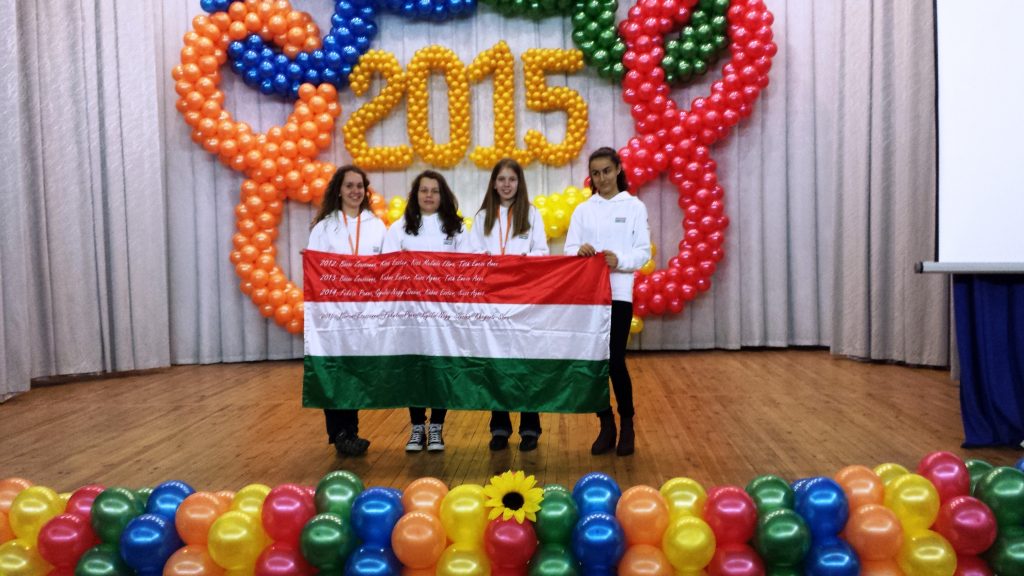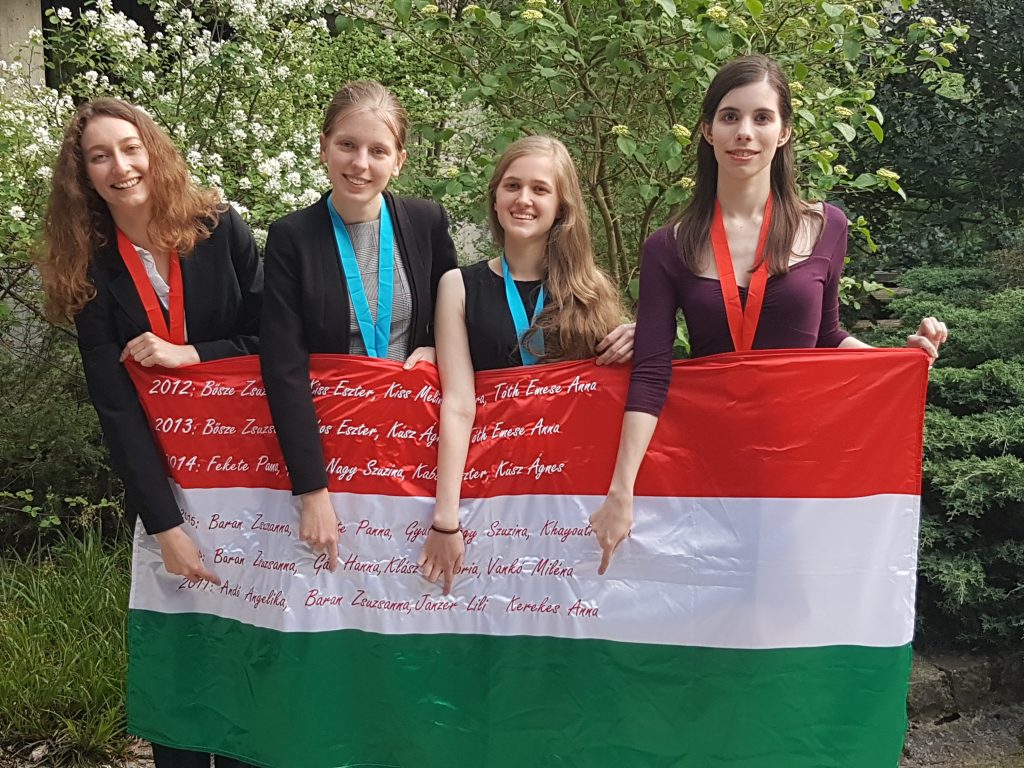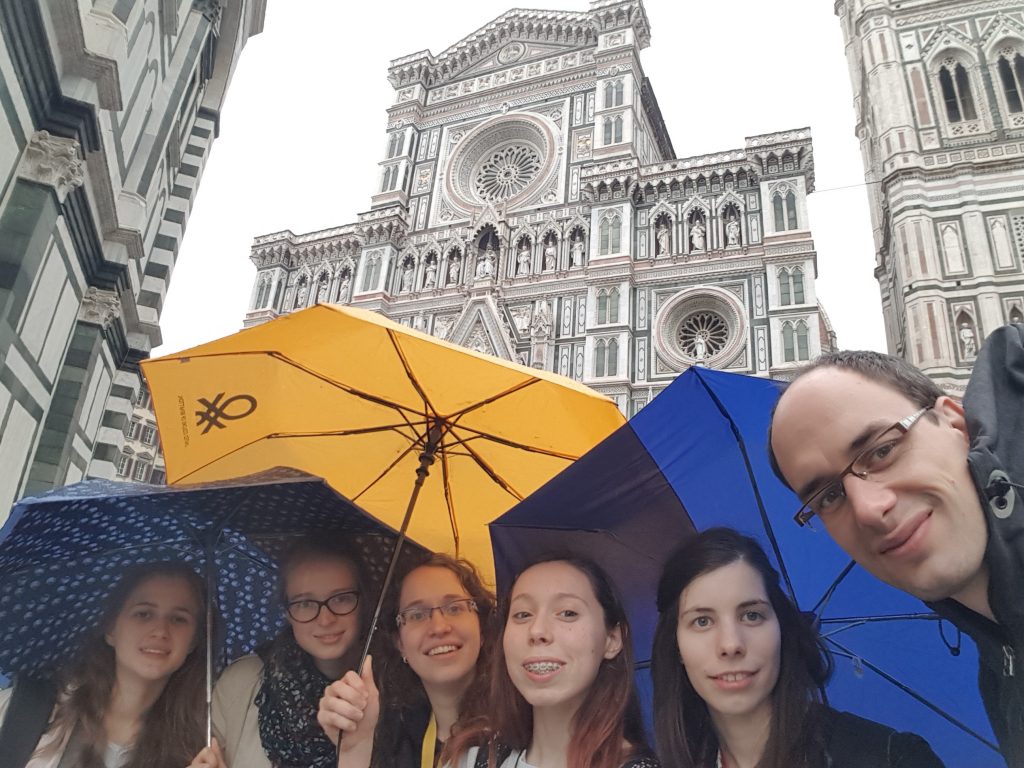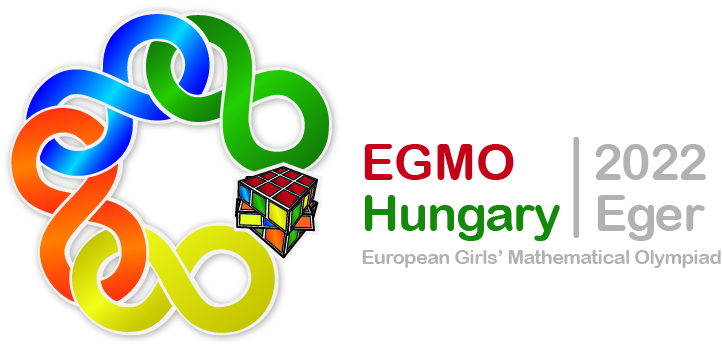Hungary has old traditions in various forms of math competitions. For example, the mathematical journal KöMaL was founded in 1894, and it still provides problems and articles for high-school students every month. Among others, John von Neumann, Paul Erdős, and László Lovász (who was awarded the 2021 Abel Prize jointly with Avi Wigderson) participated regularly in its mathematical problem-solving contest.
The Hungarian team has been participating in the International Mathematical Olympiad from the very beginning, from 1959. However, similarly to many other teams, in most of the years, almost all of the Hungarian contestants were boys. In particular, during these 60 years, there were only 11 girls who became a member of the team of six contestants. Of course, this is not only about competitions. It is likely that there are at least as many girls who would enjoy mathematical problem-solving, learning about various concepts and methods, or participating international events. What they might miss is encouragement and a community where they can meet students with similar attitudes; where they can find their way to express their interests and ideas.
Hence, when the first European Girls’ Mathematical Olympiad (EGMO) was organized in Cambridge in 2012, Hungary was happy to participate with a team of four girls. Soon after the first experiences, the team leaders started a more involved programme for high-school girls who were interested in mathematics and enjoyed meeting new problems and methods in combinatorics, algebra, number theory or geometry. From autumn to spring, 15-20 girls participated in this programme every year (and even more since 2019). In addition to the possibility of developing their problem-solving skills, they could also experience the atmosphere of team work — when the team consists of girls who share their interests in mathematics. The programme was successful in the sense that Hungary was among the first 10 countries at EGMO for eight consecutive years (best rank was 4th, in 2017), and contestants won 8 gold medals altogether. In addition, three of the Hungarian EGMO participants got silver and bronze medals at the International Mathematical Olympiad. What is more, many of these girls decided to learn mathematics at the university, or went even further, for PhD studies in mathematics. This (hopefully) means that the programme helped them to build a strong mathematical background and to find an area where they enjoy working and studying. The successful EGMO’s and the training programme showed that it is definitely worth paying more attention to girls who are interested in mathematical problem solving. As the Hungarian team leaders became more and more committed to this, they decided to participate more actively in EGMO, and to undertake the organization in one of the years. We are convinced that all our efforts will be of value and will help many girls to develop their skills, to be more self-confident and to meet new friends during the training and the competition. We are also convinced that this programme is a very good way of decreasing the unequal chances for boys and girls for achieving higher positions in academic or industrial careers.

The Hungarian team in Minsk, Belarus (2015) 
The Hungarian team in Zürich, Switzerland (2017) 
The Hungarian team in Florence, Italy (2018)
Photos: Shutterstock (cover photo), Hungarian EGMO team (below)


